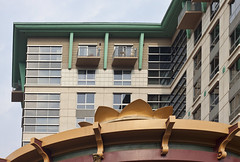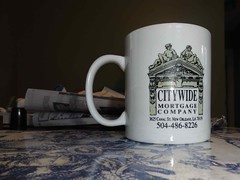Wells Fargo Kicking off New Year with Low Mortgage Rates
The shorter term 15 year loan deals at the bank start at 2.375% and APR of 2.856%. The 5/1 ARM interest rates at … The best 30 year refinance FHA fixed rate mortgage interest rates can be had for 3.250% carrying an APR of 4.274% today. The best 30 …
If you would like more informaiton please visit here…
Mortgage Rates: Low Mortgage Rates Stable After Home Price Data Released
Today's FHA 30 year fixed mortgage rates are as low as 3.250%, order cure FHA 15 year fixed mortgage interest rates are as low as 2.750% and FHA 5/1 ARM loan rates are as low as 2.500%. Low down payment guidelines and easier credit qualifying make FHA loans …
More informaiton please visit here…
Mortgage Rates: Low Mortgage Rates Remain Through Christmas Holiday
Current FHA 30 year fixed mortgage rates are as low as 3.250%, FHA 15 year fixed mortgage interest rates are as low as 2.750% and FHA 5/1 ARM loan rates are as low as 2.500%. Many home buyers need FHA loans because of the low down payment …
If you would like more informaiton please visit here…
Question by First time buyer: What is the basic difference between origination fee and discount fee also known as line 801 and 802?
I know both will bring down my mortgage rate and both can be called points. I wanted to know what are the advantages and disadvantages of each. I asked this same question to our lender and either they refuse to answer the question or they don’t know the difference. I feel like they are not being honest with me about this matter.
Best answer:
Answer by happybostonian
The answer is this: both are fees charged by mortgage brokers and lenders. Also, physician mortgage brokers can not charge points/ only lenders can- the term is mistakenly called this.
Origination fee is something charged by the broker/lender to pay for administrative fees (processing and the like).
Discount fee is something that a broker will charge in order to offset the discount points they are paying… although the regulations are not written as such.
Hope this helps you out.
Add your own answer in the comments!
Question by capitman: Is it more difficult to get an FHA loan if the house has vinyl siding?
I am planning to sell my home. It has cedar shingle siding which is quite difficult to paint, diagnosis and I am thinking of getting Vinyl siding, viagra but I have heard rumors that the FHA is reluctant to back a mortgage loan on house with vinyl siding. I don’t want to limit any buyer options.
Best answer:
Answer by Stuart
FHA loans are made on the basis of the value of the home and the borrower’s ability to repay the loan.
Vinyl siding doesn’t necessarily make the home any less valuable, unless it’s really out of character for the neighborhood.
– Stuart
Add your own answer in the comments!
A couple of great apartment constructing pictures I located:
One Hundred 4, no rx One Hundred Six, drugs 108

Image by Ed Gaillard
Apartment developing awnings, recipe East 81st Street, New York City.
For far more residences click right here…
Apartments – 257/365, 6/11/10

Image by vpickering
Apartment constructing in Chinatown, Washington, D.C.
A lot more wonderful homes click here…
ten-01-07_0357.jpg

Image by labanex
Apartment constructing exactly where I live.
Biltmore Club apartments in Phoenix, AZ.
For a lot more homes click here…
LEHMAN: Obama's student-loan repayment racket
The letter notified, illness “If proof of your current income is not received within 90 days of the date of this letter, treat your repayment plan will be changed to Standard Repayment Plan, link which could increase your monthly payment amount.” On Oct. 23, I faxed last …
If you would like more informaiton please visit here…
Judge OKs settlement in Thornburg Mortgage collapse
The interest paid on the bonds was supposedly backed by the revenue the company received from its mortgage portfolio, but the funds claimed the securities Thornburg sold were “riddled with poor-quality loans, which contained fraudulent borrower …
For more informaiton please visit here…
Question by Philip: Is there a reverse mortgage available for people less than 62 years old?
I am a US homeowner. Instead of refinancing, pharm I wanted to explore the possibility of a reverse mortgage.All I have seen so far is that this is only good for homeowners aged 62 or more. Is there a company that provides reverse mortgages for those younger than 62?
Best answer:
Answer by James H
Have a look here.
Add your own answer in the comments!



reverse mortgages aren’t that good. it’s negative ammortization, meaning you LOSE equity.
Nope. By definition, reverse mortgages are only available to those 62 and up. Sorry. Why would you want a reverse mortgage anyway if you are not on a fixed income? You have to pay the whole thing back when you sell the house!
People in foreclosure can also get one…other than that, 62 or higher!
Nope. 62 is the required age.
http://www.lendermark.com/reverse_mortgage.htm
Sorry, these loans are only set up for people over 62. Now if a spouse is over 62 and one isn’t you CAN still do it but the younger spouse must be taken off of title.
Why not do a cash out refi and put the money in a money market or something similar. You pay yourself that way by setting it up with a financial planner. I have had several clients work loans this way with the help of a good financial planner. E-mail if you have questions.
YES
A reverse mortgage is a special type of loan used by older Americans to convert the equity in their homes into cash. The money from a reverse mortgage can provide seniors with the financial security they need to fully enjoy their retirement years.
Many of the same costs that someone pays to obtain a home purchase loan, or to refinance their existing mortgage, apply to reverse mortgages too. You can expect to be charged an origination fee, up-front mortgage insurance premium (for the FHA Home Equity Conversion Mortgage or HECM), an appraisal fee, and certain other standard closing costs.
In most cases, these fees and costs are capped and may be financed as part of the reverse mortgage. Below is a more in-depth explanation of each type of fee.
Origination Fee
The origination fee covers a lender’s operating expenses—including office overhead, marketing costs, etc.—for making the reverse mortgage.
Under the HECM program, which accounts for 90 percent of all reverse mortgages made in the U.S., the origination fee is equal to the greater of $ 2,000 or 2 percent of the maximum claim amount (i.e., county FHA loan limit). Currently, the FHA loan limit varies from a low of $ 200,160 (for rural areas) to a high of $ 362,790 (for high-cost metropolitan areas). Therefore, the 2 percent origination fee generally ranges between $ 4,003 (2 percent of $ 200,160) and $ 7,256 (2 percent of $ 362,790).
Home Keeper borrowers are charged an origination fee that may not exceed 2 percent of the value of the home. With either product, the entire amount of the origination fee may be financed as part of the mortgage.
Mortgage Insurance Premium
Under the HECM program, borrowers are charged a mortgage insurance premium (MIP), equal to 2 percent of the maximum claim amount, or home value, whichever is less, plus an annual premium thereafter equal to 0.5 percent of the loan balance.
The MIP guarantees that if the company managing your account – commonly called the loan “servicer” – goes out of business, the government will step in and make sure you have continued access to your loan funds. Furthermore, the MIP guarantees that you will never owe more than the value of your home when the HECM must be repaid.
Appraisal Fee
An appraiser is responsible for assigning a current market value to your home. Appraisal fees generally range between $ 300-$ 400.
In addition to placing a value on the home, an appraiser must also make sure there are no major structural defects, such as a bad foundation, leaky roof, or termite damage. Federal regulations mandate that your home be structurally sound, and comply with all home safety codes, in order for the reverse mortgage to be made.
If the appraiser uncovers property defects, you must hire a contractor to complete the repairs. Once the repairs are completed, the same appraiser is paid for a second visit to make sure the repairs have been completed. The cost of the repairs may be financed in the loan and completed after the reverse mortgage is made. Appraisers generally charge $ 50-$ 75 dollars for the follow-up examination.
Closing Costs
Other closing costs that are commonly charged to a reverse mortgage borrower, include:
Credit report fee. Verifies any federal tax liens, or other judgments, handed down against the borrower. Cost: Generally under $ 20
Flood certification fee. Determines whether the property is located on a federally designated flood plane. Cost: Generally under $ 20
Escrow, Settlement or Closing fee. Generally includes a title search and various other required closing services. Cost: $ 150-$ 450
Document preparation fee. Fee charged to prepare the final closing documents, including the mortgage note and other recordable items. Cost: $ 75-$ 150
Recording fee. Fee charged to record the mortgage lien with the County Recorder’s Office. Cost: $ 50-$ 100
Courier fee. Covers the cost of any overnight mailing of documents between the lender and the title company or loan investor. Cost: Generally under $ 50
Title insurance. Insurance that protects the lender (lender’s policy) or the buyer (owner’s policy) against any loss arising from disputes over ownership of a property. Varies by size of the loan, though in general, the larger the loan amount, the higher the cost of the title insurance.
Pest Inspection. Determines whether the home is infested with any wood-destroying organisms, such as termites. Cost: Generally under $ 100
Survey. Determines the official boundaries of the property. It’s typically ordered to make sure that any adjoining property has not inadvertently encroached on the reverse mortgage borrower’s property. Cost: Generally under $ 250
Service Fee Set-Aside
The service fee set-aside is an amount of money deducted from the available loan proceeds at closing to cover the projected costs of servicing your account.
Federal regulations allow the loan servicer (which may or may not be the same company as the originating lender) to charge a monthly fee that ranges between $ 30-$ 35. The amount of money set-aside is largely determined by the borrower’s age and life expectancy. Generally, the set-aside can amount to several thousand dollars.
(Note: The servicing set aside is just a calculation and not a charge. The only amount added to your loan balance is the monthly servicing fee, which ranges from $ 30-$ 35.)
If you are looking for a Lender for reverse mortgage you can click on the link below
http://www.reversemortgage.org/Default.aspx?tabid=255
yes, if you are over 26 years old